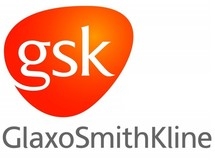A new class of medicine for Ulcerative Colitis
Inflammatory Bowel Disease (IBD) arises by excess inflammation in the gut by unknown cause. As IBD affects mostly young adults, is relatively common (80,000 patients in the Netherlands) and is a live-long condition, new treatment modalities are very much welcomed as current therapies have important shortcomings and come with high treatment costs.
Here, the AMC has established a public-private partnership with GlaxoSmithKline's (GSK) drug development progression facilities, to develop new therapeutic options for IBD. One such novel therapy could come from inhibition of so-called Jak kinases, which are inflammatory proteins that are produced by immune cells signal to target cells via signal transduction mechanisms. More specifically, Jak1, and Tyrosine Kinase 2 (Tyk2) are involved in signalling of pro-inflammatory cytokines involved in IBD. These cytokines signals via Jak and Tyk kinases mediate their actions on inflammatory responses. Small molecule Jak inhibitors targeting Jak by inhibiting its activation are currently tested in clinical trials for various inflammatory diseases such as Rheumatoid Arthritis and (IBD). However, these molecules target large classes of Jak molecules.
In this project, the academic university hospital and referral center for IBD, the AMC, is collaborating with GSK to allow testing of newly developed small molecules inhibiting Jak kinases more specifically than current medication. Rather than general Jak inhibitors, specific Jak inhibitors were tested preclinically (at the lab and in animal models). However, Jak1 inhibitors were also tested in a small patient trial.
The results show that a novel orally delivered specific Jak kinase inhibitor has clinical potential to reduce colitis, in preclinical (Tyk2i) and clinical (Jak1i) studies. In retrospect, this project shows the potential of private-academic collaboration in small molecule development and pharmacokinetics, and its testing in preclinical phase as well as clinical relevant patients trials. The impact of this work for society and health care is that it has allowed the clinical introduction of specific Jak kinase inhibitors in IBD, a difficult to treat condition.
See the website of the spin off company Gut Research B.V. or the IBD group website for more information about this research.


